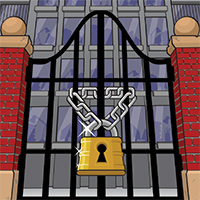July 23, 2013
A writer’s gift: finding humour amid setbacks
Posted by WARREN PERLEY – Editor, BestStory.ca
Writing from Montreal
Really good humour columnists are hard to come by. They’re up there with talented editorial cartoonists as a rare artistic species capable of parsing serious issues in search of the black humour within.
Brad Flory, a 30-year veteran of daily newspapers in Michigan, is just such an artist. His sense of humour and writing style remind me of Dave Barry, the Pulitzer Prize-winning author and columnist who wrote an internationally syndicated humour column for The Miami Herald between 1983 and 2005.
Brad considers himself to be an Everyman, a term derived from a 15th century English morality play translated from its original Dutch and which nowadays is representative of an average individual whom audiences can relate to as she/he deals with the vagaries of changing life circumstances.
Brad has come up with a term to denote the style of his Everyman persona: “Life in Plaid”, which is the title he has given to his very funny website: www.lifeinplaid.com
His idea of Life in Plaid ranges from once eating a pizza pulled from a trash can and liking it to being someone whose trust contractors continually abuse by breaking their promises to show up for house repairs.
His outlook on life can be summed up by the first line in the novel Scaramouche by 20th century Italian/English novelist Rafael Sabatini: “He was born with a gift of laughter and a sense that the world was mad.”
Notwithstanding his sense of humour, Brad Flory is a serious, respected journalist who was inducted in June 2012 into the Journalism Hall of Fame of his alma mater, Central Michigan University.
For his first BestStory.ca humour column, Brad who worked for 27 years at the Jackson Citizen Patriot newspaper, didn’t have to look far as he describes tongue-in-cheek how it felt to be a casualty of that Michigan newspaper’s downsizing last year. He still writes on contract for that daily owned by MLive Media Group, which is controlled by Advance Media, a major communications company owned by the Newhouse family.
Advance Media also publishes some of the world’s best known and respected magazines through its Condé Nast division, such as, GQ, Architectural Digest, House & Garden, Golf Digest, Vanity Fair, Vogue, W, Wired, and The New Yorker.
The subject of newspaper cutbacks comes as no surprise to North American readers.
In Canada, Sun Media, a subsidiary of giant Quebecor Media, announced on July 17, 2013 that it was closing eight publications and eliminating 360 positions in addition to the 1,000 positions it had already cut from its newspapers since the economic downturn of 2008.
Postmedia Network, Canada’s largest newspaper publisher, has been losing money since 2008, posting a $112 million loss in its spring 2013 quarter. It has responded by continually reducing publishing days, staff and its real estate footprint.
Another trend in Canada and the U.S. is to save salaries by eliminating publishers, instead having one manager oversee the business operations of multiple newspapers. On May 30, 2013, the Chicago Sun-Times announced it was cutting its entire photography department, requiring reporters to shoot photos and video.
Such desperate attempts by newspapers to adapt to dwindling advertising revenues by cutting editorial resources has only exacerbated the loss of their readers, according to the Washington D.C.-based Pew Research Center’s Project for Excellence in Journalism. Pew reported in March 2013 that 2012 saw “a continued erosion of news reporting resources converged with growing opportunities for those in politics, government agencies, companies and others to take their messages directly to the public.”
“Estimates for newspaper newsroom cutbacks in 2012 put the industry down 30% since its peak in 2000 and below 40,000 full-time professional employees for the first time since 1978,” Pew reported.
Nearly a third of U.S. adults, 31 per cent, have stopped turning to news outlets because they no longer provide them with the news they have been accustomed to getting, Pew said, referring to both print and television news.
So amid all this dire economic news, how can one explain the mix of optimism and dark humour which motivate our Michigan-based Plaid Man to write with such wit about receiving his own pink slip last year?
Well, to begin with, you should know that Brad is used to adversity, growing up as a rabid Detroit Lions fan who sports that NFL team’s tattoo on his left shoulder. The last time the Lions won the NFL championship was in 1957 when Brad was a month old. “I was so excited, I shit my diaper,” he told me.
As to whether he will live to see the Lions win another NFL championship, he says: “The way things are going, no biological life form can last that long.“ Then the inner optimist shines through, adding: “ But who knows? Maybe next year.”
Brad, who lives in the tiny town of Mason (population 8,752) 90 miles west of Detroit, even has a kind word for the Motor City, which on July 18, 2013 became the biggest city in U.S. history to file for bankruptcy protection.
“Detroit is a far better city than its reputation,” Brad told me. “It’s got character.”
Sounds to me like that could be the subject of another opinion piece by our Plaid Man.
[See teaser below]

UPDATED:
Published: July 2013
Thanks for your long, loyal service: Too bad your job is being axed
By BRAD FLORY
Writing from Mason, Michigan
Veteran journalist Brad Flory gives a first-person account of losing his job at a daily newspaper, part of the massive corporate cutbacks convulsing the media industry throughout North America and beyond. Summoned to a meeting with the “boss”, the staff had a premonition of bad news when the public address system announced that doors to the building had been locked and the phones cut to prevent outside distractions. With his unique sense of humour, Flory explains how opportunity knocked on that dark day.